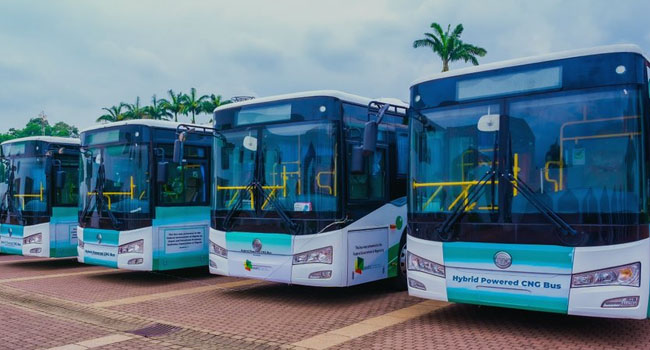The Nigerian Government has adopted 88 international standards for Compressed Natural Gas (CNG) products to support the nationwide rollout of various CNG initiatives.
This move aims to ensure the smooth implementation of CNG systems in vehicles and the use of high-quality products in Nigeria. The Director-General of the Standards Organisation of Nigeria (SON), Dr. Ifeanyi Okeke, made this announcement in a statement on Sunday, marking the World Standards Day celebration in Abuja. This year’s theme is “Our Shared Vision for a Better World: Standards for Changing the Climate.”
Okeke explained that the event aims to raise awareness about the role of standards in driving industrialization and economic growth.
In light of growing concerns about the conversion to CNG vehicles—particularly fears over explosions and other safety risks linked to CNG as a fuel source—Okeke emphasized that the government’s adoption of international standards ensures that CNG products meet strict safety and quality benchmarks. This move supports the broader transition to sustainable energy solutions.
He stated, “Standards are crucial for achieving these goals and facilitating the development of renewable energy, energy efficiency, and sustainable practices. In line with President Bola Ahmed Tinubu’s agenda, SON has adopted 88 international standards for CNG products to ensure the success of CNG initiatives.”
Okeke also highlighted SON’s involvement in developing the Natural Gas Vehicles Monitoring System, a project designed to oversee the implementation of CNG systems in vehicles and guarantee product quality in Nigeria.
Additionally, SON has conducted factory visits to China and India to certify CNG components and kits, prioritizing safety and quality assurance.
“As we face the challenges of climate change, it is vital to recognize the importance of standards in the effective implementation of mitigation strategies,” Okeke said.
He assured that SON remains committed to improving lives through standardization, enhancing consumer confidence, and boosting the global competitiveness of Nigerian-made products.
“Through international collaboration, standards bodies across the world align their activities with the Sustainable Development Goals for peace, prosperity, and the well-being of people and the planet. International standards offer practical solutions, and we must embrace them as the backbone of global progress,” Okeke concluded.


